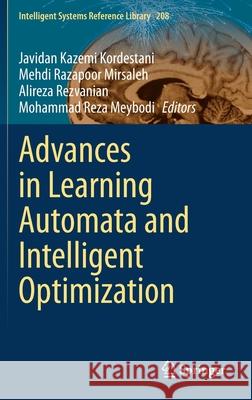Advances in Learning Automata and Intelligent Optimization » książka
topmenu
Advances in Learning Automata and Intelligent Optimization
ISBN-13: 9783030762902 / Angielski / Twarda / 2021 / 340 str.
Kategorie:
Kategorie BISAC:
Wydawca:
Springer
Seria wydawnicza:
Język:
Angielski
ISBN-13:
9783030762902
Rok wydania:
2021
Wydanie:
2021
Numer serii:
000385804
Ilość stron:
340
Waga:
0.68 kg
Wymiary:
23.39 x 15.6 x 2.06
Oprawa:
Twarda
Wolumenów:
01
Dodatkowe informacje:
Wydanie ilustrowane











